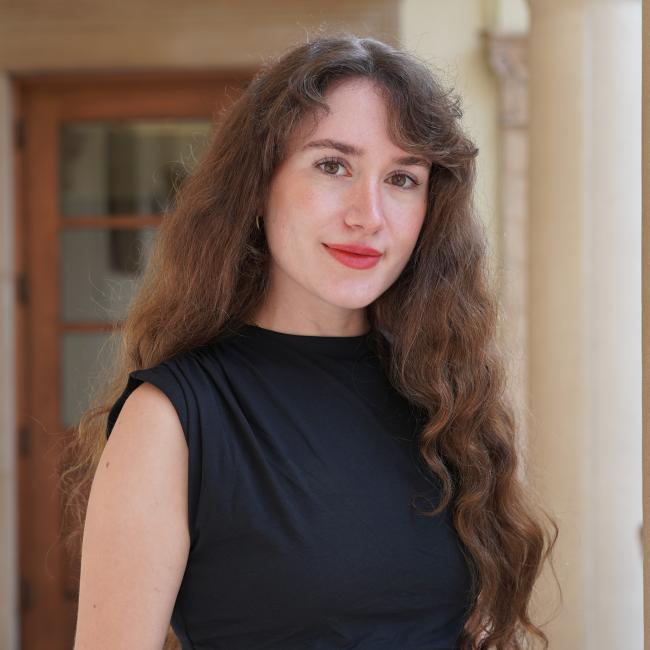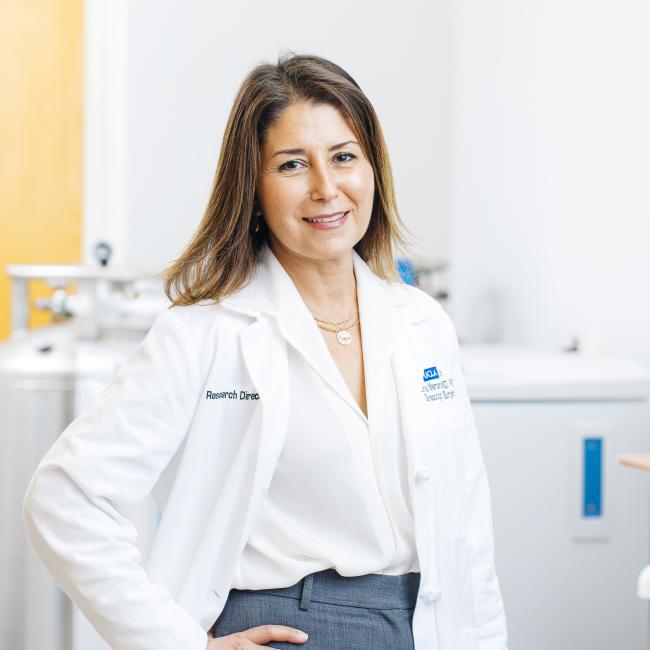
Teal there's a cure: Paulinda Babbini's fight against ovarian cancer
Paulinda Babbini has been sporting teal nails, scarves and other accessories for the last 13 years. The color of ovarian cancer awareness month, this everyday homage to her late daughter, Robin, gives Paulinda a chance to keep not only the memory of Robin close, but serves as a daily reminder of her driving mission — to ensure a better future for other women who meet the same diagnosis.
A senior in high school, Robin was only 17 when she was diagnosed with stage three ovarian cancer. Neither her family nor her gynecologist at the time imagined that someone so young could be affected. Even after undergoing chemotherapy and a total hysterectomy , Robin’s cancer — as is the case with as many as 80% of individuals with ovarian cancer — recurred, and she lost her battle at 20 years old.

This tragedy spurred Paulinda into founding The Ovarian Cancer Circle, a Los Angeles-based nonprofit organization, to support ovarian cancer research and resources for those affected by the disease. This work, Paulinda said, allows her to shine a light on Robin’s legacy and gives her a sense of comfort and purpose. “Spiritually, Robin is with me every day,” Paulinda said.
In this work, she’s found a partner in Dr. Sanaz Memarzadeh, a gynecologic oncologist and scientist who specializes in the prevention, diagnosis and treatment of gynecologic cancers. Through grassroots fundraising efforts, such as an upcoming “Teal There’s A Cure” Luncheon and Boutique, Paulinda has raised over $1 million to support Memarzadeh’s research at the G.O. Discovery Lab at UCLA.
A practicing surgeon and member of the Eli and Edythe Broad Center of Regenerative Medicine and Stem Cell Research at UCLA, Memarzadeh is part of a vibrant community of scientists dedicated to utilizing stem cells to transform the understanding and treatment of disease. Her lab’s proximity to that of fellow member Dr. Lili Yang inspired the floormates to leverage their combined expertise to develop next-generation immunotherapies to target ovarian cancer.
“Philanthropic support from Paulinda and her team has not only helped to fuel impactful research in my lab, but has also enabled us to secure more funds through federal sources and other organizations — multiplying our research dollars,” Memarzadeh said. Their partnership extends beyond the lab, too. Through their joint advocacy, the Los Angeles City Hall and LAX International Airport pylons have repeatedly been illuminated in teal in recognition of ovarian cancer awareness month in September.
To further increase awareness about ovarian cancer, Paulinda distributes an informational bookmark to nearly everyone she meets. She wants all women to know the symptoms to look out for, such as bloating, difficulty eating or feeling full quickly, nausea, pelvic and abdominal pain , among others. She also stresses the tests to request from a gynecological oncologist, which include a pelvic/rectal exam, a transvaginal sonogram and a CA 125 blood test. “If we had known what to ask for, Robin might still be with us today,” Paulinda said.
Paulinda’s advocacy and Memarzadeh’s patient care and research serve as true complements, bringing attention to the disease as well as leveraging both passion and expertise to work toward a future where women and families affected by ovarian cancer can rely on early detection tests and experience improved standards of care.

